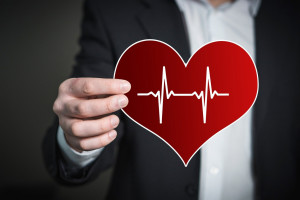
A commonly prescribed medication for heart failure was linked to a lower risk of heart damage, or cardiotoxicity, among high-risk cancer patients undergoing chemotherapy treatment using anthracyclines, according to preliminary late-breaking science presented today at the American Heart Association’s Scientific Sessions 2024.
The meeting, Nov. 16-18, 2024, in Chicago, is a premier global exchange of the latest scientific advancements, research and evidence-based clinical practice updates in cardiovascular science.
“We have identified a promising new strategy for protecting the heart during cancer treatment, with the potential to impact patient care significantly and future research in heart disease and cancer,” said study lead author Marcely Bonatto, M.D., a cardiologist and specialist in heart failure and heart transplantation at the Heart Institute, University of São Paulo in Curitiba, Brazil.
“Importantly, our strategy enables early identification of people at high risk for developing heart dysfunction, allowing for timely interventions to prevent further loss of heart function.”
Heart failure occurs when damage prevents the heart from pumping blood well enough to supply the body with blood and nutrients.
Anthracyclines are a class of chemotherapy medications used to treat many types of cancer, including breast cancer, leukaemia, lymphoma and sarcoma.
However, one of their potential side effects is cardiomyopathy, a disease of the heart muscle that makes it harder for the heart to pump blood to the rest of the body.
Cardiomyopathy is a form of cardiotoxicity that refers to heart damage caused by cancer treatments involving chemotherapy.
The SARAH clinical trial examined the effects of the heart-failure medication sacubitril-valsartan, an angiotensin receptor neprilysin inhibitor or ARNI, on preventing further heart damage among 114 patients undergoing chemotherapy treatment with anthracyclines for breast cancer, lymphoma, sarcoma or leukaemia.
The study found:
“Our findings highlight the importance of identifying patients with high-risk who are most likely to benefit from heart protection, and therefore, minimise unnecessary side effects and health care costs for low-risk people,” Bonatto said.
“Accurately identifying which people will benefit from these strategies remains a significant challenge.”
The study had several limitations, including that all participants were at high risk for heart damage and were receiving anthracyclines for chemotherapy—113 received doxorubicin and 1 received daunorubicin—so the findings may not apply to people with lower risk or those treated with different chemotherapy medications.
Other limitations are that the study could not account for heart damage after the six-month follow-up and did not look at other factors like survival or quality of life.
The study also took place in a single hospital in Brazil, so the findings may not apply to patients treated in other hospitals.
Additional research is needed on more diverse patient groups because the study participants were mostly white and female.
Study background and details:
Co-authors, disclosures and funding sources are listed in the manuscript.
Statements and conclusions of studies that are presented at the American Heart Association’s scientific meetings are solely those of the study authors and do not necessarily reflect the Association’s policy or position.
The Association makes no representation or guarantee as to their accuracy or reliability.
Abstracts presented at the Association’s scientific meetings are not peer-reviewed, rather, they are curated by independent review panels and are considered based on the potential to add to the diversity of scientific issues and views discussed at the meeting.
The findings are considered preliminary until published as a full manuscript in a peer-reviewed scientific journal.
The Association receives funding primarily from individuals; foundations and corporations (including pharmaceutical, device manufacturers and other companies) also make donations and fund specific Association programmes and events.
The Association has strict policies to prevent these relationships from influencing the science content.
Revenues from pharmaceutical and biotech companies, device manufacturers and health insurance providers and the Association’s overall financial information are available here.
Additional Resources:
Source: American Heart Association
The World Cancer Declaration recognises that to make major reductions in premature deaths, innovative education and training opportunities for healthcare workers in all disciplines of cancer control need to improve significantly.
ecancer plays a critical part in improving access to education for medical professionals.
Every day we help doctors, nurses, patients and their advocates to further their knowledge and improve the quality of care. Please make a donation to support our ongoing work.
Thank you for your support.